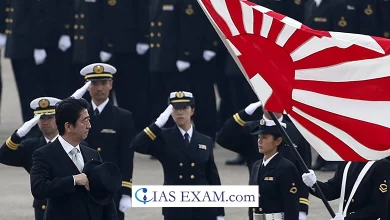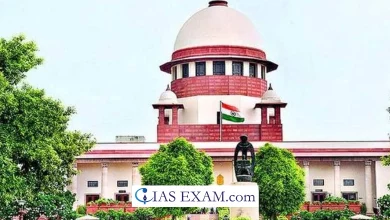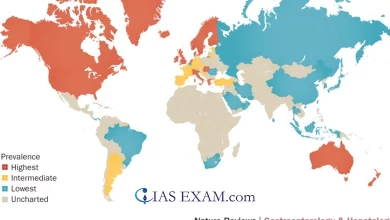Daily Current Affairs for UPSC
Attorney General of India
Topic- Indian Polity [GS Paper-2]
Context- Senior advocate Mukul Rohatgi is to become Attorney General of India for a second time from October 2022.
Attorney General of India
- The Attorney General (AG) of India is the Highest Law officer of India.
- Article 76 of the Constitution of India provides for the office of Attorney General of India.
- Appointment and Eligibility
- Attorney General is appointed by the President on the advice of the central government.
- He or she must have qualification to be appointed as a judge of the Supreme Court, i.e. he or she must be a citizen of India and must have been a judge of some high court for five years or an advocate of some high court for ten years or an eminent jurist, in the opinion of the President.
- Term of the Office is not fixed by the Constitution.
- Removal
- Procedures and grounds for the removal of Attorney General are not stated in the Constitution. He or she holds office during the pleasure of the President and may be removed by the President at any time.
- Duties and Functions
- To give recommendations to the Government of India (GoI) upon such legal matters, which are referred to her or him by the President.
- To perform such other legal duties that are assigned to her or him by the President.
- To represent on behalf of the Government of India in all cases in the Supreme Court or in any case in any High Court in which the Government of India is concerned.
- To act as the representative of the Government of India in any reference made by the President to the Supreme Court under Article 143 i.e. Power of the President to consult the Supreme Court of the Constitution.
- To accomplish the functions conferred on her or him by the Constitution or any other law.
- Rights
- She or he has the right to speak and to take part in the proceedings of both the Houses of Parliament or in their joint sitting and any committee of the Parliament of which she or he may be named a member, but without a right to vote.
- She or he enjoys all the entitlement and immunities that are available to a member of Parliament.
- She or he does not fall in the category of government servants and he is not debarred from private legal practice.
- However, she or he should not advise or hold a brief against the Government of India.





.png)



